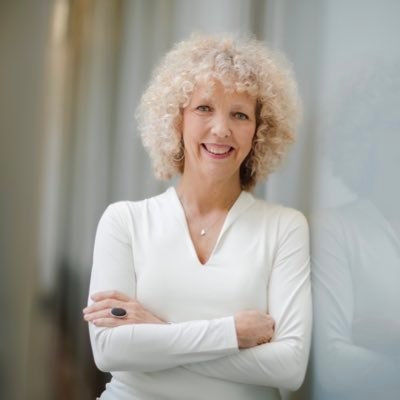ANTIGUA & BARBUDA, Jun 25 (IPS) – German State Secretary and Special Envoy for International Climate Action Jennifer Morgan has stressed the need for urgent climate action and called on G20 countries to do more to reduce greenhouse gas emissions.
The G20 consists of 19 developed and developing countries, the European Union and, since 2023, the African Union. It represents the largest economies in the world, accounting for 85 percent of global GDP.
In an interview with IPS on the sidelines of the Fourth International Conference on Small Island Developing States (SIDS4), the former co-director of Greenpeace International emphasized the crucial role of the G20 in the fight against climate change.
“Germany and of course the European Union are ready to continue leading the way in phasing out fossil fuels and building on renewable energy, but we need the G20 to step up this,” she told IPS.
“Ultimately there will be things we can adapt to. We must halve global emissions by 2030 and to this end we are working hard within the G20 to consciously help all these countries, including ours, move forward.”
Morgan spoke about the resilience-focused story of small island developing states, a theme woven throughout SIDS4.
“How can countries be resilient to the extreme weather that is coming, the hurricanes that are coming? For example, how can we build water systems? This is a major focus that Germany is working on and I’ve heard a lot about it here, so that they are resilient to salt water coming into a system, so that they are resilient when a storm hits. That is an area where we can make progress,” Morgan said.
Morgan has spoken out about the need for an energy transition and increased investment in clean energy in developing economies. Last week, she highlighted the fact that while investment in clean energy will double that of fossil fuels by 2024, “investment must accelerate further, especially in emerging and developing economies, where two-thirds of the world’s population sees only 15 percent of these investments.” .”
“The gap must be closed,” she shared on social media platform X.
Speaking to the IPS, the climate envoy said the financial issue will also play a major role in how small island states adapt to a changing climate. She said SIDS leaders are unanimous in their calls for better access to finance and reform of the international financial system.
“Germany is working globally on a range of these issues to create a suitable financing system that also works for small island states,” she said.
“We are working hard to get, for example, the strategies of the Green Climate Fund, to have special windows for SIDS and also to provide support for putting forward proposals that are much accelerated and to get 50% of the funding worldwide towards adaptation and resilience, which is a major priority for SIDS. We also help to increase the funds going to SIDS. SIDS receive money. I can say from a German perspective that we are active, and also from the Green Climate Fund, but we have to continue to make it more efficient and faster and also make sure that it reaches the people on the ground, because people on the ground, those in their villages and living in their cities, know what is best to better cope with the effects of climate change.”
Morgan describes Germany’s work with SIDS on the digitization of cultural heritage as both ‘heartbreaking and absolutely essential’.
“For countries that are very low lying and experiencing sea level rise and storms, people have to leave their villages and their cultural heritage is linked to those places. We have been working with Tuvalu and other countries to document, through artificial intelligence and digitalization, the things that are most essential to them, to ensure they are protected and not lost,” she said.
Morgan’s messages echoed those of United Nations Secretary General Antonio Guterres and Antigua and Barbuda Prime Minister Gaston Browne. The UN chief called on developed economies to deliver on their pledge to double adaptation financing by 2025, while Browne called on the Global North to meet its $100 billion climate finance pledge and make the Loss and Damage Fund operational .
“Small Island Developing States have every right and reason to insist that developed economies fulfill their pledge to double adaptation financing by 2025 and we must hold them to this pledge as a bare minimum,” Guterres said at the conference. Browne added that “these are important investments in humanity, justice and humanity’s just future.”
IPS UN agency report
Follow @IPSNewsUNBureau
Follow IPS News UN Bureau on Instagram
Follow @IPSNewsUNBureau
Follow IPS News UN Bureau on Instagram
© Inter Press Service (2024) — All rights reservedOriginal source: Inter Press Service

